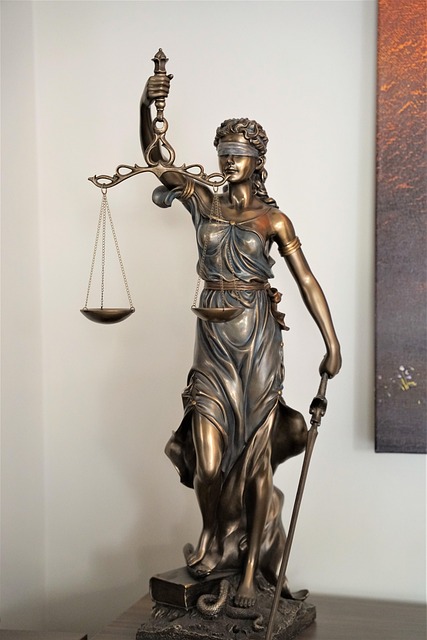Co-ownership property disputes are common among businesses and individuals, arising from differences in management, finances, or future plans. Resolving these legal issues requires understanding state laws and considering alternatives to litigation, such as mediation or arbitration, which offer faster, more cost-effective solutions and maintain relationships. Legal experts navigate complex disputes, providing strategic guidance and exploring all legal options. Documenting agreements thoroughly and seeking specialized legal counsel are crucial steps to protect your interests in co-ownership property disputes impacting various communities.
In the intricate world of real estate, co-ownership property disputes are a complex and challenging aspect for many. Navigating these legal complexities requires a deep understanding of your rights and options. This article explores the nuances of co-ownership property disputes, offering insights into effective strategies to protect your interests. By understanding the legal options available and the crucial role experts play, you can ensure fair resolution and safeguard your co-owned property investments.
- Co-Ownership Property Disputes: Navigating Legal Complexities
- Understanding Legal Options for Fair Resolution
- The Role of Experts in Property Co-Ownership Cases
- Strategies to Protect Your Interests in Co-Owned Property
Co-Ownership Property Disputes: Navigating Legal Complexities
Co-ownership property disputes can be complex legal matters that often arise when two or more parties have an interest in a single piece of property. These conflicts are particularly prevalent among corporate and individual clients, as well, leading to intricate legal complexities. When co-owners disagree on issues such as management, financial contributions, or future development plans, finding a resolution becomes a delicate process.
Navigating these disputes requires a deep understanding of state laws and regulations governing co-ownership property rights. Legal options available include mediation, arbitration, or formal litigation. Each approach has its merits, with the goal being to reach a fair and mutually agreeable outcome for all respective business interests involved.
Understanding Legal Options for Fair Resolution
When navigating a co-ownership property dispute, understanding your legal options for a fair resolution is paramount. Many individuals assume that litigation is the only path forward, but there are alternative avenues to consider, such as mediation or arbitration, which can offer more swift and cost-effective outcomes. These processes allow both parties to negotiate directly, often leading to mutually agreeable solutions without the need for a lengthy court battle.
In some cases, if both co-owners are willing, a complete dismissal of all charges can be achieved, preventing public embarrassment and preserving their professional relationships. Across the country, courts increasingly recognize the benefits of these alternative dispute resolution methods, promoting efficiency and fostering a more harmonious environment for resolving property disputes without resorting to jury trials.
The Role of Experts in Property Co-Ownership Cases
When it comes to complex property co-ownership disputes, engaging legal experts is often a game-changer. These specialists play a pivotal role in navigating the intricate web of co-ownership property rights, offering valuable insights and strategic guidance. In cases where multiple parties lay claim to a single piece of real estate, their expertise becomes even more crucial, ensuring that all legal options are explored and considered.
The role of these experts extends beyond simply providing advice; they actively assist clients in understanding the complexities involved. By delving into all stages of the investigative and enforcement process, they can uncover hidden aspects of the dispute, whether it’s a historical oversight or an undisclosed agreement. This comprehensive approach ensures that their clients are well-informed, making strategic decisions that align with their best interests, across the country and within philanthropic and political communities alike.
Strategies to Protect Your Interests in Co-Owned Property
When it comes to co-owned properties, disputes can arise from a variety of situations, whether it’s a disagreement among partners or changes in personal circumstances. To protect your interests, it’s crucial to have a strategy in place. The first step is to thoroughly document all agreements, including initial partnerships, financial contributions, and any modifications made over time. This clear record serves as irrefutable evidence in the event of a dispute.
Seeking legal counsel from experienced RF finance law firms is another vital move. These professionals can guide you through your options, which may include mediation, arbitration, or litigation. They will help navigate the complexities of co-ownership property disputes, ensuring that your rights are protected and that any resolution aligns with your best interests. Remember, having a solid strategy and legal support is key to preserving your stake in co-owned properties, especially considering the broader implications for both philanthropic and political communities as well as the prevention of white collar and economic crimes.
RF Finance Law Firms offer invaluable expertise in navigating complex co-ownership property disputes. By understanding your legal options and involving experienced professionals, you can achieve a fair resolution. Through strategic protection of your interests, individuals and businesses involved in co-owned properties can safeguard their future investments and maintain harmonious relationships. Remember, early engagement with legal experts is key to managing these intricate matters effectively.






